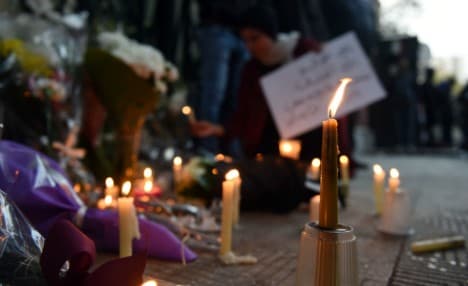Italy-Egypt friendship on line as slain student is buried

As Italy prepared to bury Giulio Regeni on Friday, Prime Minister Matteo Renzi warned Egypt its friendship was on the line over the probe into the student's unexplained death in Cairo.
Renzi said Egypt was cooperating with Rome's demand that Italian investigators be involved in the investigation into the death of the 28-year-old whose torture-scarred body was discovered dumped in a ditch on the outskirts of the Egyptian capital on February 3rd.
"For the moment, all our requests have been met and above all we have demanded that every element should be put on the table in order that the truth can be established and those really responsible can be detained," Renzi told Radio Anch'io.
"This has been a tragic event," he added.
"I extend my condolences to Giulio's family and I say that we have told the Egyptians: friendship is a precious asset but it is only possible on the basis of truth."
Regeni, a PhD student at Cambridge University, disappeared on January 25th.
Many Italians believe he was abducted and killed by elements of the Egyptian security services, an allegation the authorities in Cairo have rejected as baseless.
According to media reports, the Italian team in Cairo have questioned an Egyptian national who has testified that he saw a foreigner being bundled into a police van close to Regeni's house around the time he disappeared on January 25th.
Regeni's slaying while he was in Cairo doing research for his doctoral thesis has become a cause celebre amongst academics around the world and has turned the spotlight on what rights and opposition groups say are increasing abuses by security services under the military-backed government in Cairo.
Nearly 5,000 university lecturers and researchers have signed a letter accusing Egypt of using torture against its own citizens and demanding an independent probe into Regeni's death.
Flags were flying at half-mast Friday across the region of Friuli Venezia, where Regeni was due to be laid to rest in his home town of Fiumicello.
Dozens of his friends from around the world have made the journey to northeastern Italy to honour his memory with residents of the little town opening their doors to them.
The family has requested the media to allow the funeral to be conducted in private.
The day Regeni went missing was the fifth anniversary of the start of the Arab Spring uprising which led to the overthrow of longtime autocrat Hosni Mubark.
Police had been deployed across the city to prevent demonstrations.
Comments
See Also
Renzi said Egypt was cooperating with Rome's demand that Italian investigators be involved in the investigation into the death of the 28-year-old whose torture-scarred body was discovered dumped in a ditch on the outskirts of the Egyptian capital on February 3rd.
"For the moment, all our requests have been met and above all we have demanded that every element should be put on the table in order that the truth can be established and those really responsible can be detained," Renzi told Radio Anch'io.
"This has been a tragic event," he added.
"I extend my condolences to Giulio's family and I say that we have told the Egyptians: friendship is a precious asset but it is only possible on the basis of truth."
Regeni, a PhD student at Cambridge University, disappeared on January 25th.
Many Italians believe he was abducted and killed by elements of the Egyptian security services, an allegation the authorities in Cairo have rejected as baseless.
According to media reports, the Italian team in Cairo have questioned an Egyptian national who has testified that he saw a foreigner being bundled into a police van close to Regeni's house around the time he disappeared on January 25th.
Regeni's slaying while he was in Cairo doing research for his doctoral thesis has become a cause celebre amongst academics around the world and has turned the spotlight on what rights and opposition groups say are increasing abuses by security services under the military-backed government in Cairo.
Nearly 5,000 university lecturers and researchers have signed a letter accusing Egypt of using torture against its own citizens and demanding an independent probe into Regeni's death.
Flags were flying at half-mast Friday across the region of Friuli Venezia, where Regeni was due to be laid to rest in his home town of Fiumicello.
Dozens of his friends from around the world have made the journey to northeastern Italy to honour his memory with residents of the little town opening their doors to them.
The family has requested the media to allow the funeral to be conducted in private.
The day Regeni went missing was the fifth anniversary of the start of the Arab Spring uprising which led to the overthrow of longtime autocrat Hosni Mubark.
Police had been deployed across the city to prevent demonstrations.
Join the conversation in our comments section below. Share your own views and experience and if you have a question or suggestion for our journalists then email us at [email protected].
Please keep comments civil, constructive and on topic – and make sure to read our terms of use before getting involved.
Please log in here to leave a comment.